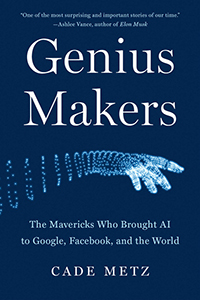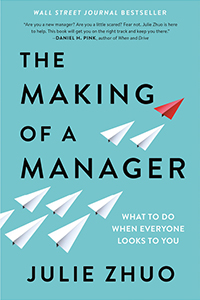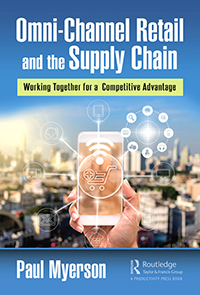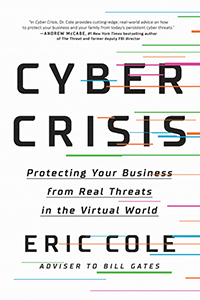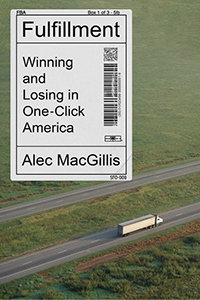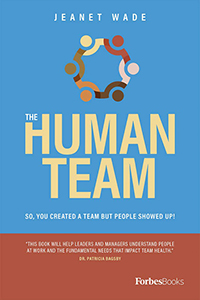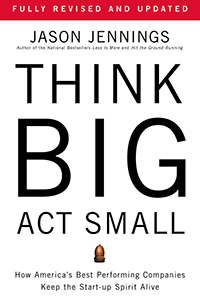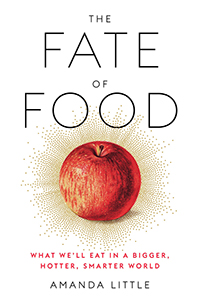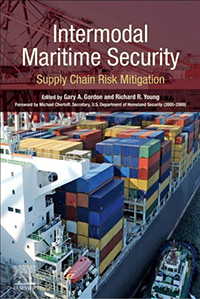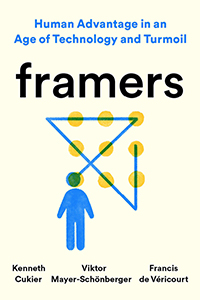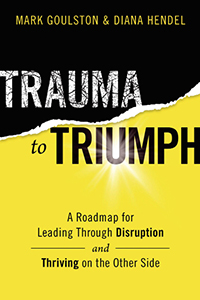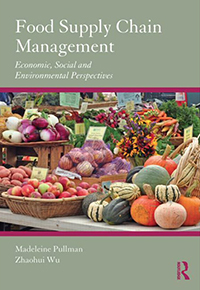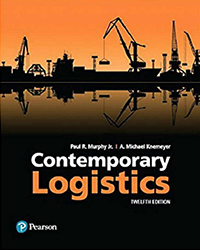2021 Summer Reading Guide

When it’s time to absorb your next audiobook or crack open a book this summer, take a dip into this collection of fresh research, actionable advice, and best practices to refresh your supply chain knowledge.
Genius Makers
The Mavericks Who Brought AI to Google, Facebook, and the World
By Cade Metz
Artificial intelligence started out as a project at the fringes of the science community. Now, supply chains everywhere are using it to streamline operations. This book presents the conflict AI creates between national interests, shareholder value, the pursuit of science, and concerns about privacy, bias, and prejudice, culminating in a vital question: How far will we let it go?
Circular Fashion
A Supply Chain for Sustainability in the Textile and Apparel Industry
By Peggy Blum
This introduction to sustainability in fashion lays out case studies and profiles key companies such as Patagonia, Veja, Christopher Raeburn, and Stella McCartney. It starts with an overview of the fashion industry—dissecting the linear production model of make, use, and dispose—and then dives into the concept of a circular supply chain.
The Making of a Manager
What to Do When Everyone Looks to You
By Julie Zhuo
New supply chain and logistics managers face endless questions and uncertainties. But one truth is that great managers are made, not born. This modern guide provides everyday examples and insight to the difference between a great manager and an average one, when to look past an awkward job interview, and how to build trust with your team. Whether you’re new to the job, a veteran supply chain leader, or looking to be promoted, this handbook will help you become the kind of manager you wish you had.
Omni-Channel Retail and the Supply Chain
Working Together for a Competitive Advantage
By Paul Myerson
This book describes the impact that omnichannel marketing can have on supply chain and logistics. It is intended to not only help management meet the needs of today’s ever-changing world, but also anticipate what may be required in the future to achieve superior customer service, profitability, and a competitive advantage.
Cyber Crisis
Protecting Your Business from Real Threats in the Virtual World
By Eric Cole
By the time they discover a cybersecurity breach, most businesses have already been compromised for at least three years. Drawing on his experience as a professional hacker for the CIA, the author provides actionable advice that even those with little technical background can implement to protect their supply chains, businesses, and themselves. This book will help you put together a proactive plan to minimize exposure and damage to your supply chain.
Fulfillment
Winning and Losing in One-Click America
By Alec MacGillis
Many consumers now shop with just one click, and the pandemic has only intensified that transition. Amazon’s network of delivery hubs, data centers, and corporate campuses is creating a gap between winner and loser cities, and work has become increasingly isolated. This book tells the stories of those who have thrived and those who struggle to thrive in this rapidly changing environment.
The Human Team
So, You Created a Team But People Showed Up!
By Jeanet Wade
With a combination of business research and anecdotes from her career, the author describes how to attend to human needs by clarifying assignments, showing baseline consideration, and inspiring confidence in your supply chain team. Personal profiles, new research, and insight from a successful business leader make each chapter dynamic and useful for overcoming global talent challenges and navigating disruption.
Think Big, Act Small
How America’s Best Performing Companies Keep the Startup Spirit Alive
By Jason Jennings
Nine profitable companies that have increased profits by 10% or more for 10 years in a row are embracing new supply chain and business strategies to achieve consistent growth. All these companies built their culture using a simple edict: Think big, act small. Discover the power of combining the strengths of a large organization with the drive of a startup. Companies of all sizes and across multiple industries can benefit from these models.
The Fate of Food
What We’ll Eat in a Bigger, Hotter, Smarter World
By Amanda Little
How can the food industry feed 9 billion people sustainably? Reinventing the global food chain presents two challenges: solving existing problems in industrial agriculture, and preparing for future disruption. Through interviews with farmers, scientists, activists, and engineers, this book explores new and old strategies for food production while tracking the growth of a movement that could redefine sustainable food on a global scale.
Intermodal Maritime Security
Supply Chain Risk Mitigation
By Gary A. Gordon and Richard R. Young
Learn how to assess key supply chain risks, threats, and vulnerabilities related to transportation and maritime trade. Connect the dots between new technologies and intermodal operations and analyze critical policies, operations, and infrastructure. This book provides the foundation of knowledge needed for anyone involved with transportation and maritime trade, from students to experienced practitioners.
Framers
Human Advantage in an Age of Technology and Turmoil
By Kenneth Cukier, Viktor Mayer-Schönberger, and Francis de Véricourt
Framing is not just a way to improve supply chain decision-making in the era of algorithms, but a means of survival in a time of disruption. Framing is creating a mental model that enables us to identify patterns and predict how things will unfold. Illustrating their case with examples and research, the authors examine how Spotify beat Apple by reframing music as an experience, the disaster of framing COVID-19 as a seasonal flu, and more.
Trauma to Triumph
A Roadmap for Leading Through Disruption (and Thriving on the Other Side)
By Mark Goulston and Diana Hendel
When COVID-19 hit, businesses reinvented themselves overnight. Supply chains faltered, consumer behaviors shifted, and workers either went remote or navigated new safety protocols. Leaders and employees adapted to a new normal. The pandemic might seem like a one-off crisis, but all organizations need to be prepared for future crises. This book shows you how.
Food Supply Chain Management
(2nd Edition)
By Madeleine Pullman and Zhaohui Wu
With an introduction that speaks to both academic and non-academic audiences, the second edition of this comprehensive guide to food supply chain management covers new topics such as cold chain, last-mile logistics, blockchain and traceability, and the implications of global trade and climate change. Quick facts, and mini and full case studies examine the farm-to-table movement, sustainable co-ops, and more.
Contemporary Logistics
(12th Edition)
By Paul R. Murphy Jr. and A. Michael Knemeyer
This book explores the foundation of contemporary logistics from a managerial perspective, zooming in on geopolitical tensions, increasing trade, vulnerabilities caused by disruption, and rapid technological advancement. This new edition provides up-to-date insights and perspectives from reviewers, adopters, and other stakeholders.
The Digital Supply Chain Challenge
Breaking Through
By Ralf W. Seifert and Richard Markoff
Today’s supply chain leaders are expected to understand all aspects of the business and the expectations of upstream and downstream partners. They also need to be technology savvy to navigate Industry 4.0. This book distills the authors’ 50-plus years of combined supply chain experience into short articles and best-practice case studies to help you find benchmarks and relevant insights, and get a handle on the essentials of supply chain digitization.

